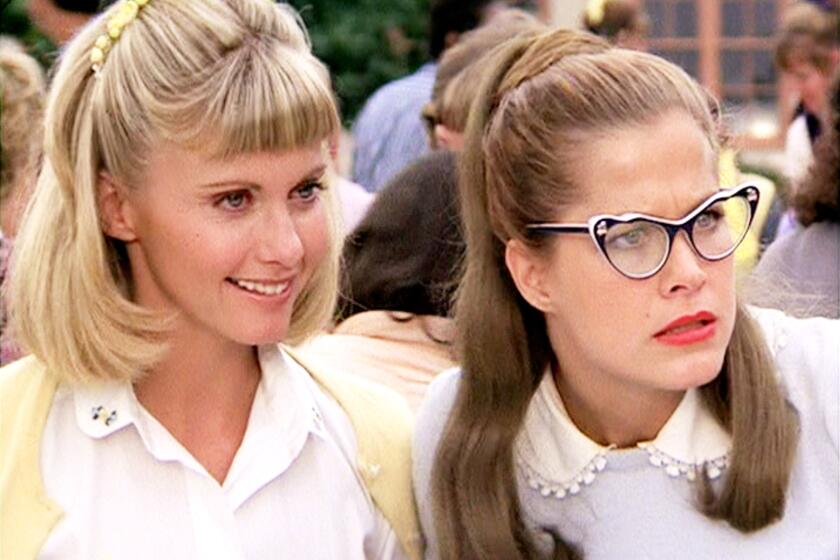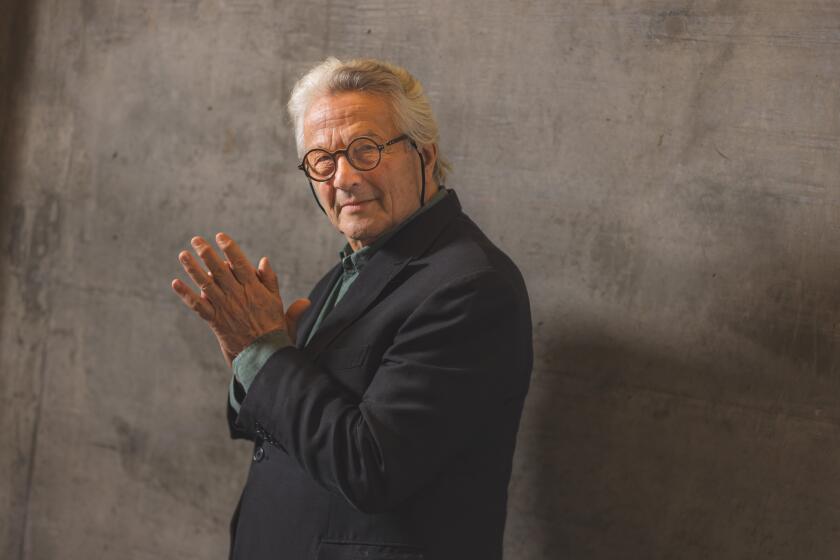Review: Another civil rights story gets superficial treatment in ‘The Best of Enemies’
Hollywood is having a moment with films based on true stories of American racial strife that make us feel as if social harmony could be possible — e.g., the Oscar-winning “Green Book” — if we’re just willing to talk to each other.
Enter “The Best of Enemies,” based on the 1971 true story of school desegregation in Durham, N.C., wherein a Ku Klux Klan Exalted Cyclops locked horns with an African American sharecropper’s daughter and community organizer — and she prevailed. Through the experience, they became lifelong friends. It’s a remarkable message of human connection, but the sanded-down cinematic narrative has a serious perspective problem.
Robin Bissell makes his directorial debut with the film based on the book “The Best of Enemies: Race and Redemption in the New South” by Osha Gray Davidson. The book, written by a white man, was both adapted for the screen and directed by a white man, and therein lies the perspective problem — the very uneven story is weighted heavily toward the journey of the redeemed Klansman in the equation, C.P. Ellis, played by Sam Rockwell.
The force of nature that is Taraji P. Henson portrays black activist Ann Atwater as a mouthy broad and a fierce advocate for her community. When a local black elementary school goes up in flames, it ignites the debate over school desegregation. Looking to pass the buck, a judge hires Bill Riddick (Babou Ceesay) to organize a “charrette,” a two-week-long community-wide meeting to workshop ideas and vote on a resolution. Bill promptly presses the fiery Ann and the stalwart C.P. into service as co-chairs, representing their respective communities and their interests.
In “The Best of Enemies,” Bissell has needlessly manipulated the real story, completely missing what makes it significant. Reading the Wikipedia page is far more moving than anything in the disjointed film. In reality, C.P. and Ann bonded over their struggles in poverty, recognizing their shared oppression under larger capitalistic structures, and shared a salvation in gospel music.
In Bissell’s script, the two bond when Ann helps C.P. with his developmentally disabled son, and he is inspired by a local Vietnam vet (John Gallagher Jr.) who employs his black Army buddy as manager of his hardware store. The connection between C.P. and Ann in the film is tenuous at best. One can see more chemistry in the archival footage that comprises the epilogue.
The changes Bissell makes to the story are overly contrived, and the writing and editing are shaky. Most egregiously, Ann’s perspective is completely underwritten, with only the single humanizing factor of one daughter, who appears briefly. And while there are mentions of C.P.’s belief in uplifting the “white working man,” the script ignores the class issues that undergirded the real story.
Bissell offers up the kind of easy-to-digest pablum that provides emotional catharsis and a safe space for white liberals to tut disapprovingly at racism, a performative display of allyship, but it never pushes anyone to question their own role within — and personal benefit from — a society steeped in white supremacy and class inequalities. Films like this have long worn out their welcome.
------------
‘The Best of Enemies’
Rating: PG-13, for thematic material, racial epithets, some violence and a suggestive reference
Running time: 2 hours, 13 minutes
Playing: In general release
More to Read
Only good movies
Get the Indie Focus newsletter, Mark Olsen's weekly guide to the world of cinema.
You may occasionally receive promotional content from the Los Angeles Times.






